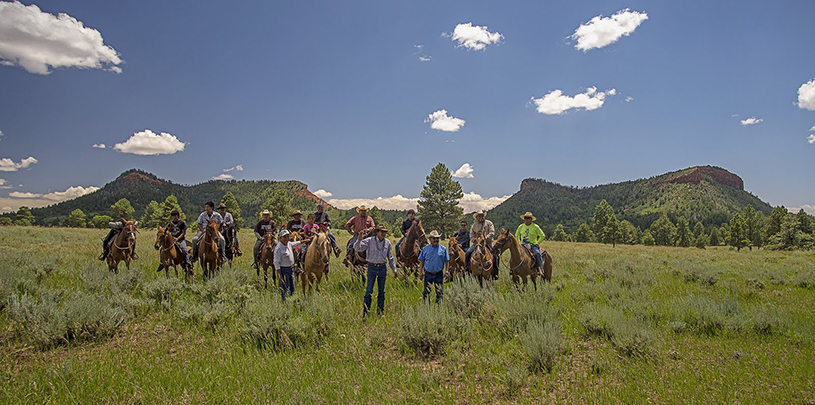
 by Natasha Hale, Native America Manager
by Natasha Hale, Native America Manager
As 2016 begins, the Bears Ears Inter-Tribal Coalition continues to push for a new presidentially-proclaimed national monument in southeastern Utah. Encompassing famed places like Cedar Mesa and Comb Ridge, the Bears Ears cultural landscape is full of cliff dwellings, rock art, and unparalleled landscapes that deserve permanent protection.
The coalition, which is led by the Hopi, Navajo, Zuni, Ute Mountain Ute, and Uintah and Ouray Ute governments and supported by 26 other tribes and the National Congress of American Indians, has proposed a 1.9 million acre monument that would protect their ancestral homelands from looting, energy development, and damage from uneducated visitors.
Under the 1906 Antiquities Act, which was created with the intent to protect archaeologically and culturally significant resources, the president has the executive authority to create federally managed national monuments. But for the first time in the history of the Antiquities Act, tribes are petitioning the president for a national monument that calls for joint management between the tribes and the federal government.
The president has a responsibility to think and act to take care of her because we all share one mother, and that’s Mother Earth.
–Ute Mountain Ute Councilwoman Regina Lopez-Whiteskunk
Up until the end of the year, the coalition was working in good faith with the Public Lands Initiative, a formal process initiated by Representative Rob Bishop to solve public land disputes in southeastern Utah. After Congressmen Bishop and Chaffetz missed numerous deadlines for delivery of the draft bill, and gave no response—positive or negative—to the coalition’s monument proposal, the coalition decided to withdraw from the process. After heavy deliberation, they sent a formal letter on December 31 to the representatives discontinuing discussions regarding the inclusion of the Bears Ears National Monument proposal in the Public Lands Initiative bill.
On January 20, after the coalition withdrew from the process, Representatives Bishop and Chaffetz finally unveiled the first draft of the Public Lands Initiative bill. The coalition called it “woefully inadequate” in a letter to the Congressmen, taking issue with the lack of true collaborative management, the failure to protect hundreds of thousands of vulnerable acres, and possible limitations to the Antiquities Act. Perhaps the most disappointing, the draft fails to give adequate representation to regional tribes and offers them only a consultative role in land management.
Hopi has been instructed to speak and act with the full authority as a sovereign tribe in order to protect all Tuwakatsi, which includes Bears Ears. As Vice Chairman, I stand by my people’s priorities to do so as a member of our Coalition.
—Bears Ears Co-Chair and Hopi Vice-Chairman Alfred Lomahquahu
Colorado College recently released their well-respected annual “State of the Rockies” poll (link), which surveys bi-partisan voters in seven Western states regarding conservation issues. An overwhelming 80 percent of participants support protection of public lands through national monuments.
On the Bears Ears front, 66 percent of Utahns support a Bears Ears National Monument designation. It seems that the majority of Utahns stand with the tribes in their efforts. But this comes to no surprise, as the proposed area includes some of the most majestic sights in the Southwest, over 100,000 Native American archaeological and cultural sites, and is a popular recreation destination for mountain biking, hiking, climbing, hunting, and fishing.
With new developments in the coalition’s journey, 2016 promises to be the “Year of Bears Ears.” You can help by asking President Obama to support the tribes in protecting these outstanding public lands.
A small victory in the legal case challenging Daneros uranium mine, near Bears Ears National Monument.
Read MoreMugs, handmade soaps, high fashion, jewelry and more. There's something for everyone on your holiday shopping list.
Read MoreBears Ears petroglyph panels and cultural sites protected by new proposed management plan.
Read More